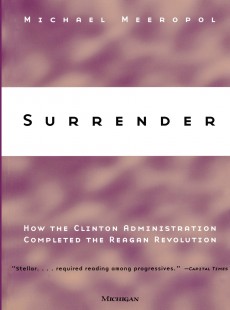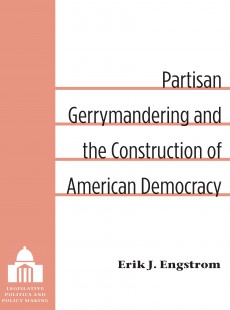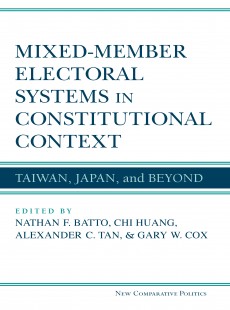
Surrender
How the Clinton Administration Completed the Reagan Revolution
Michael Meeropol
 Publisher: University of Michigan Press
Publisher: University of Michigan Press
Imprint: University of Michigan Press
Published: 01/2000
Pages: 400
Subject: Business & Economics - Economics/General, Political Science - General, Business & Economics - Economics/Macroeconomics
Print ISBN: 9780472086764
eBook ISBN: 9780472900732
DESCRIPTION
Meeropol provides compelling evidence of the failure of the U.S. economy between 1990 and 1994 to generate rising incomes for most of the population or improvements in productivity. This caused, first, the electoral repudiation of President Bush in 1992, followed by a repudiation of President Clinton in the 1994 Congressional elections. The Clinton administration made a half-hearted attempt to reverse the Reagan Revolution in economic policy, but ultimately surrendered to the Republican Congressional majority in 1996 when Clinton promised to balance the budget by 2000 and signed the welfare reform bill. The rapid growth of the economy in 1997 caused surprisingly high government revenues, a dramatic fall in the federal budget deficit, and a brief euphoria evident in an almost uncontrollable stock market boom. Finally, Meeropol argues powerfully that the next recession, certain to come before the end of 1999, will turn the predicted path to budget balance and millennial prosperity into a painful joke on the hubris of public policymakers.
Accessibly written as a work of recent history and public policy as much as economics, this book is intended for all Americans interested in issues of economic policy, especially the budget deficit and the Clinton versus Congress debates. No specialized training in economics is needed.
REVIEWS
—Roger Gathman, Austin Chronicle, January 14, 2000
RELATED TITLES













